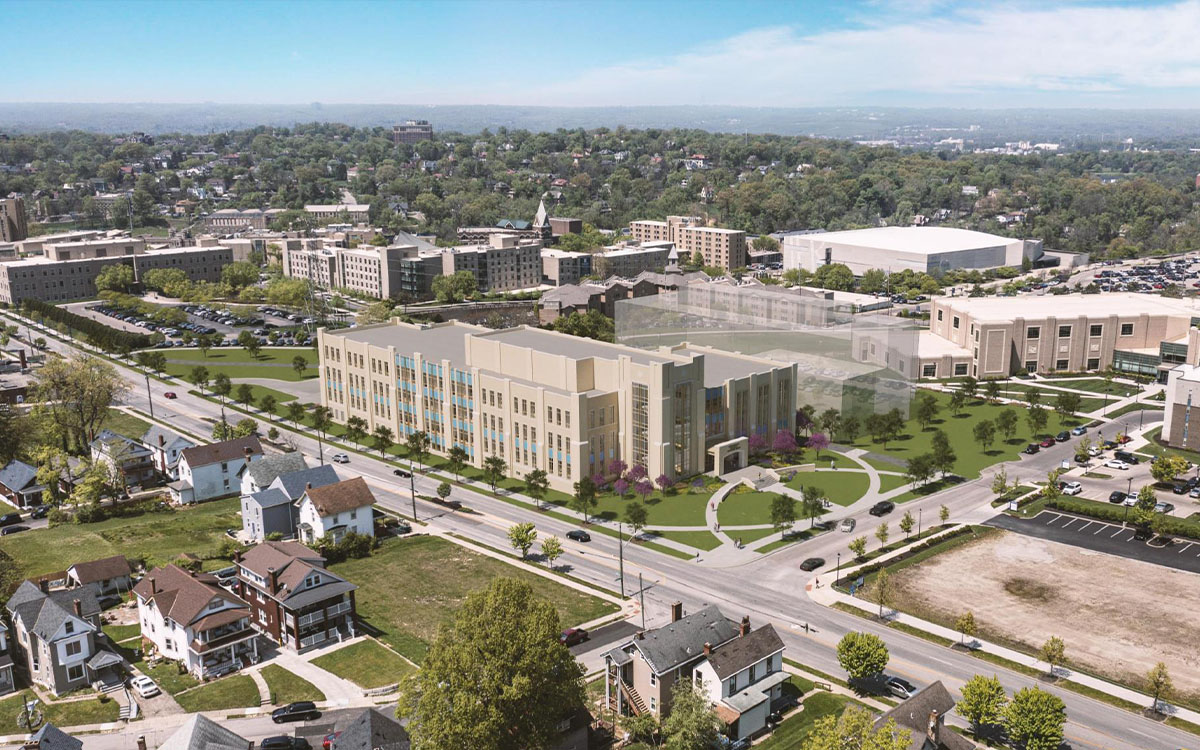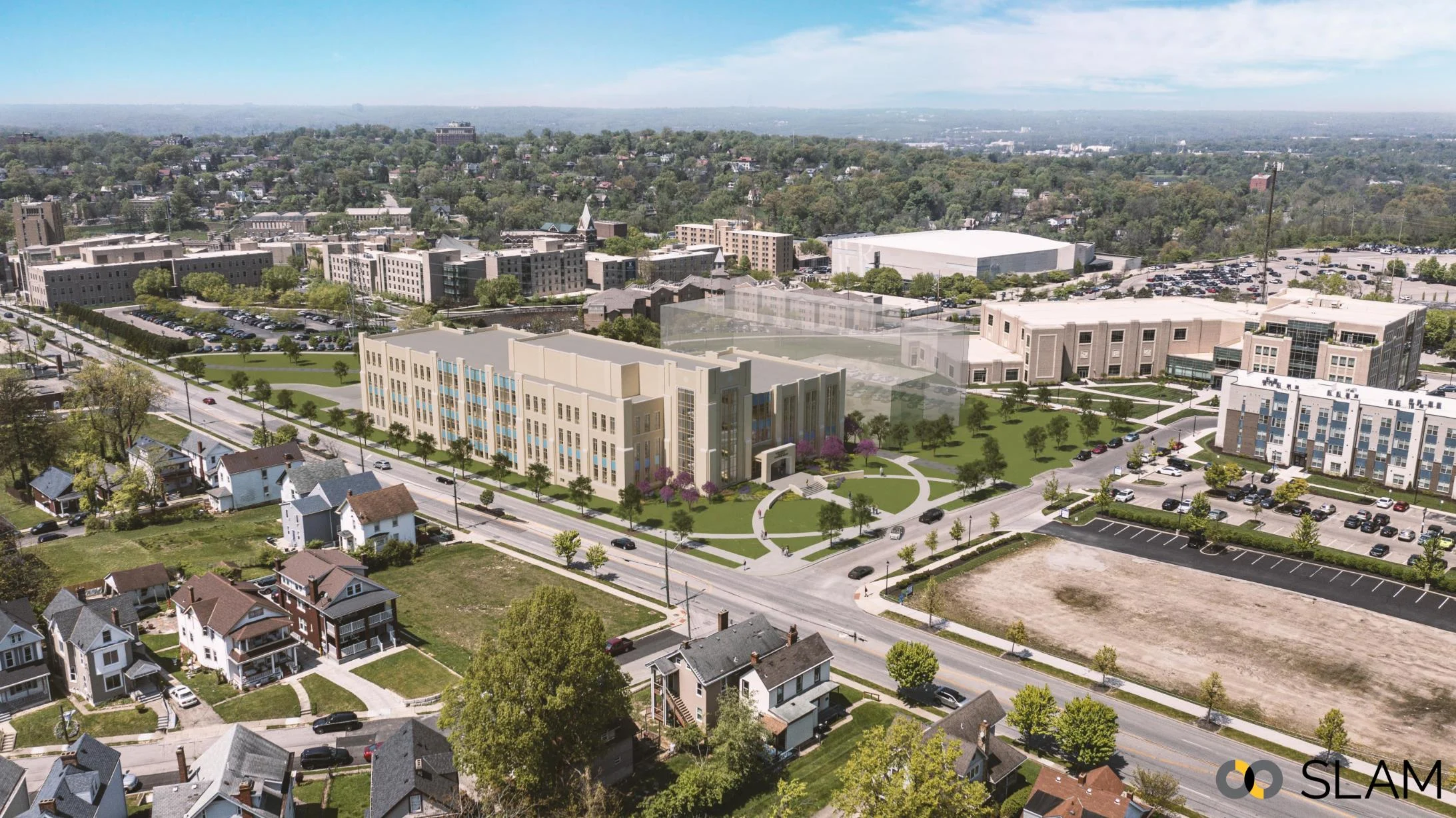The Nation's First Jesuit College of Osteopathic Medicine
"Xavier's mission is deeply tied to our culture of care, making our campus a perfect fit for a College of Osteopathic Medicine. This college will sit squarely at the intersection of community need, Xavier’s established academic strengths and a remarkable Jesuit Catholic mission that emphasizes service that is rooted in justice and love. We will soon welcome aspiring doctors with servants’ hearts, instilling in them the knowledge, skills and values that will empower them to make a true difference through their profession."
-President Colleen Hanycz, Ph.D.



Quick Facts
- On May, 5, 2023, Xavier University’s Board of Trustees unanimously approved plans to establish the nation’s first Jesuit College of Osteopathic Medicine.
- A new complex will be constructed on campus to house the college. Construction began on Dec. 6, 2024 with a groundbreaking ceremony. Watch a video recap of the groundbreaking ceremony.
- University leadership aims to welcome the College of Osteopathic Medicine’s inaugural class in 2027.
- Dr. Stephen J. Halm, DO, FAAP, FACP, FACOI will serve as the founding dean of the proposed College of Medicine. Read a Q&A With Dr. Halm.
College of Medicine Announcements
Plans to establish the nation’s first Jesuit College of Osteopathic Medicine address a critical future need to train more primary care doctors while bolstering Xavier’s status as a leader in mission-driven, health sciences education.
- Xavier breaks ground on proposed College of Osteopathic Medicine - Dec. 6, 2024
- FIRST LOOK: Xavier unveils renderings for new medical school - Dec. 4, 2024
- Xavier sets groundbreaking date, releases building details for College of Osteopathic Medicine - Oct. 11, 2024
- Xavier University hosts College of Medicine Pregame - March 2024
- Xavier Contributes Nearly $1B Annually to Ohio Economy- Feb. 2024
- Xavier Receives Milestone $50M Gift Toward College of Osteopathic Medicine- Dec. 12, 2023
- Xavier Selects Steven Halm as Founding Dean for College of Osteopathic Medicine - Oct. 23, 2023
- Xavier University School of Osteopathic Medicine Announcement Press Conference - May 10, 2023
- Xavier University to Establish Nation’s first Jesuit College of Osteopathic Medicine - May 8, 2023
College of Medicine Naming Opportunities
The proposed College of Osteopathic Medicine Naming Opportunities offer a spectrum of avenues for individuals and organizations to leave a lasting legacy within our institution.
College of Medicine Design
Designed by national architecture firm The S/L/A/M Collaborative and Cincinnati-based firm MSA Design, the new facility will include features such as a state-of-the-art simulation hospital with 16 exam rooms and five flexible simulation rooms, a nearly 200-seat lecture hall and a 5,600-square-foot meeting hall. Plans also include a teaching kitchen where students will learn how to prepare nutritious meals, a key feature of the facility that will benefit students and, in turn, their future patients.
Media/Press Inquiries
Contact David Hamilton, Public Relations and Communications Specialist, Office of Marketing and Communications, at hamiltond@xavier.edu.
Building the Future of Jesuit Medical Education
Watch the Xavier College of Osteopathic Medicine come to life in real-time!
Live Stream